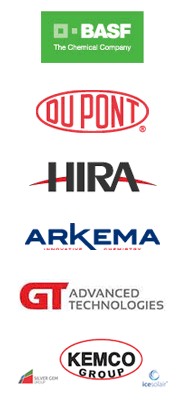Schneider's solution for a smart city
Posted On January 21, 2012
Jean-Pascal Tricoire, president and CEO of France's Schneider Electric, is out to make a smart city for you.
But his version is far removed from the ‘smart' concepts that accompanied the local real estate boom
until late 2008.
So, it will not be about TVs switching on to the favourite programmes as soon as
you get through the front door or refrigerators programmed to gauge what you might like to have for
dinner.
Tricoire's smart solutions, in comparison, are downright prosaic and that makes it more
workable. In other words, his is about managing buildings and other resources better for optimum energy
efficiency.
He now has a chance to make it work. Schneider Electric is rolling out a trial run with
Abu Dhabi Municipality that would cover the energy management process in 71 buildings. These properties are
located right in the heart of the city.
The project could later be extended to more than 2,000
buildings over a ten-year timeline.
The stated intention is to bring about energy efficiency of 30 per
cent at each building, which would then translate into cost savings and a marked reduction in carbon
emissions.
Such an energy audit project — the value of which was not disclosed — is a
first for the French company in the Middle East, which in the last five years has emerged a key overseas
territory for it.
Versions of what it intends to achieve in Abu Dhabi have already been done
outside the region, but Tricoire pointedly says that he is not pushing "one size fits all"
solutions.
"The pressure on economies will push people to make cities smarter — at the end of
the day cities are the places where the game of sustainability will be won or lost," said Tricoire. And he
insists it can be done at reasonable cost.
"Communications used to be very expensive and that was a
factor earlier; now, because of the internet, the various points are connected — there's fibre-optics,
wi-fi and the local telecommunications lines," the CEO added.
"You don't need space technology to
make the cities smart and attain optimisation of energy consumption.
"As for the cost of doing business
with us, the cliché of European companies being expensive is just not true anymore. We are as
competitive as anyone out there."
The Tricoire version of the smart city is no way limited to
buildings. It would encompass transportation and water network infrastructures as well as the power
grids.
For a project such as the one with Abu Dhabi Municipality, will there be a lot of downtime
to put in place the new energy efficiencies?
"Unless it's a building much older than five years,
there is no downtime as such," Tricoire said.
"There are energy floors in [new] buildings and it's only a
question of putting in the data plugs. The big change that has happened in the last decade is that everything
has become digital in the generated data.
"For [existing] buildings there are only two ways to
bring in efficiencies — one is to radically change the shell through adding more insulation, and that
can be hugely expensive. The second way would be to accept the existing property is optimal and look to the
inside to better manage energy resources."







